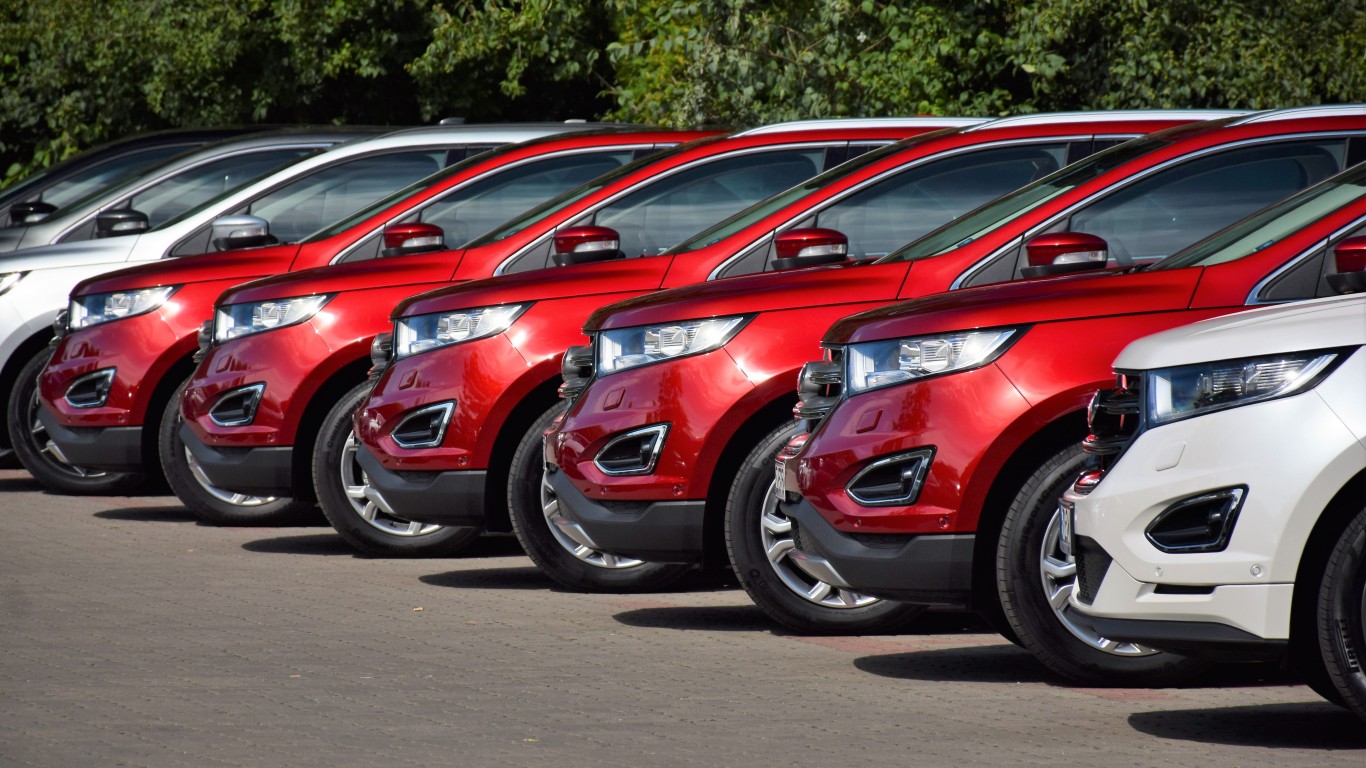Cars and Drivers
Ford's New Tack on European Sales Wipes Out 12,000 Jobs

Published:
Last Updated:

New passenger car sales in Europe have been dropping since 2015. Last year, new vehicle sales rose just 0.1% year over year. Thursday morning, the European Automobile Manufacturer’s Association (ACEA) revised its 2019 sales estimate down from a gain of 1% year over year to a drop of 1%.
Ford Motor Co. (NYSE: F) has fared even worse. Last year passenger vehicle sales were down 2.3% in Europe, and in the first five months of 2019, Ford’s sales are down 8.1% compared with the same period of 2018. Sales by all automakers are down 2.1% year over year in the first five months of the year.
On Thursday, Ford revealed its “Roadmap for Sustainable Profitability” in Europe comprising three “customer-focused” businesses, three new nameplates in the next five years, improved operational efficiency and a short-term goal of improved financial results in 2019. The company has set a longer-term goal for a 6% EBIT (earnings before interest and taxes) margin for its European business.
To reach those operational efficiency and profitability goals, Ford said it plans to reduce the number of its facilities from 24 to 18 by the end of next year, which combined with the closure of an office in England and other consolidations will result in the loss of 12,000 jobs, including 2,000 salaried employees.
Last year, Ford’s EBIT margin declined by $765 million year over year, and the company posted an EBIT loss of $398 million on revenue of $31.3 billion. Revenue was up 6% year over year in 2018, but that was not enough to overcome higher costs and an adverse exchange rate.
The latest plan for Europe divides the continent’s operating model into three divisions: commercial vehicles, passenger vehicles and imports. Ford’s commercial vehicles are already Europe’s top sellers. The new plan calls for the passenger car division to “lead a future portfolio of European-built cars and SUVs.” The import group will include a “niche portfolio of iconic passenger vehicles” including Mustang, Explorer and a Mustang-inspired electric performance vehicle due out next year.
The company did not identify the three new nameplates it expects to introduce over the next five years, but did say that these would be introduced in addition to an all-new Kuga compact sport utility vehicle, the compact Puma crossover and an Explorer plug-in hybrid due early next year. Stuart Rowley, president of Ford’s European division, noted, “Our future is rooted in electrification.”
Ford said it plans to close its Bridgend engine plant in Wales, its transmission plant in France and two assembly plants and one engine plant in Russia. A transmission plant in Slovakia will be sold. Shift reductions also are planned for assembly plants in Germany and Spain.
In January, Ford was reportedly in discussions with Volkswagen about how the two industry giants could work together on electric and self-driving vehicles. VW’s supervisory board is expected to discuss, and perhaps approve, an alliance with Ford at the board’s July 18 meeting, according to a Wednesday report at Bloomberg. VW CEO Herbert Diess said in January that any alliance would not include equity deals between the two companies.
Ford is not considered to be among the worst companies to work for, and it is the maker of some of America’s most iconic classic cars.
The thought of burdening your family with a financial disaster is most Americans’ nightmare. However, recent studies show that over 100 million Americans still don’t have proper life insurance in the event they pass away.
Life insurance can bring peace of mind – ensuring your loved ones are safeguarded against unforeseen expenses and debts. With premiums often lower than expected and a variety of plans tailored to different life stages and health conditions, securing a policy is more accessible than ever.
A quick, no-obligation quote can provide valuable insight into what’s available and what might best suit your family’s needs. Life insurance is a simple step you can take today to help secure peace of mind for your loved ones tomorrow.
Click here to learn how to get a quote in just a few minutes.
Thank you for reading! Have some feedback for us?
Contact the 24/7 Wall St. editorial team.